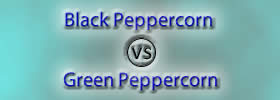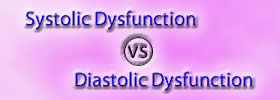Difference between Organic and Inorganic Compounds
Key difference: The commonly accepted guideline is that organic compounds are generally compounds that nearly always contain carbon-hydrogen bonds, while everything else that does not is classified as inorganic compounds. There are some exceptions to this rule. Mainly, the division of organic and inorganic compounds depends on a set of properties defining each set.
 Essentially, a compound is a type of molecule. A molecule can be made up of two or more atoms of the same element or two or more atoms of different elements. However, compounds are molecules that are made up of atoms of different element.
Essentially, a compound is a type of molecule. A molecule can be made up of two or more atoms of the same element or two or more atoms of different elements. However, compounds are molecules that are made up of atoms of different element.
A molecule is the smallest amount of a chemical substance that can exist. Such as the smallest amount of water one can have is a molecule of water or H20. It is made of up different atoms together; hence it can be separated back into the different atoms.
Compounds are divided into two main categories: organic compounds and inorganic compounds. However, the problem arises as over the years the definition as to what constitutes an organic compound and an inorganic compound has differed significantly. Even now, there is no definite description of what fits in which category.
The commonly accepted guideline is that organic compounds are generally compounds that nearly always contain carbon-hydrogen bonds, while everything else that does not is classified as inorganic compounds. There are some exceptions to this rule. Mainly, the division of organic and inorganic compounds depends on a set of properties defining each set.
Generalized properties of Organic and Inorganic Compounds:
|
Organic Compounds |
Inorganic Compounds |
|
Many are gases, liquids or solids |
Most are solids |
|
Usually always contain carbon, especially carbon-hydrogen bonds |
May contain carbon. Contain metal and other elements. Does not contain carbon-hydrogen bonds. |
|
Generally found in living matter, i.e., animals and plants. |
Generally obtained from non-living matter, i.e., minerals. |
|
Biological in nature |
Mineral in nature |
|
Some compounds are highly complex and have high molecular masses. These complex compounds are stable. |
Inorganic compounds are less complex. Comparatively a complex compound is generally less stable. |
|
Form covalent bonds |
Most form ionic bond, some covalent bonds are present |
|
Composed of few elements only, commonly carbon, hydrogen, oxygen, nitrogen, sulfur, and phosphorus |
Composed of all the known elements |
|
Unable to make salts due to the covalence of carbon |
Make salts |
|
Lower melting and boiling points |
Higher melting and boiling points |
|
Insoluble in water, soluble in organic solvents |
Readily soluble in water, insoluble in organic solvents |
|
Highly inflammable and volatile |
Not inflammable and non – volatile |
|
Poorer conductors of heat and electricity in aqueous solutions |
Better conductors of heat and electricity in aqueous solutions |
|
Slower reaction rate |
Higher reaction rate |
|
Produces more complex set of products during reaction |
Produces less complex set of products during reaction |
|
Exhibit the phenomenon of isomerism |
Only the co-ordination compounds show the phenomenon of isomerism |
|
Classified into many classes on the basis of functional groups, known as homologous series. Each class is represented by a general formula and the members show similar properties. |
Classified as acids, bases and salts. No homologous series found |
|
Include nucleic acids, fats, sugars, proteins, enzymes and many fuels. |
Include salts, metals, substances made from single elements and any other compounds that don't contain carbon bonded to hydrogen. |
|
Examples: methane, ethane, acetylene, alcohols, carbon tetrachloride (CCl4), urea [CO(NH2)2] |
Examples: carbon dioxide, sulphuric acid, NaCl, diamond (pure carbon) |
Image Courtesy: globalspec.com









Comments
Student
Fri, 12/15/2017 - 09:44
Somnath Sahu
Tue, 11/07/2017 - 09:44
saket
Thu, 09/14/2017 - 07:19
Pramod
Wed, 09/06/2017 - 18:37
Prashant
Tue, 07/18/2017 - 22:29
Prashant Chavan
Tue, 07/18/2017 - 22:27
Student
Mon, 06/05/2017 - 16:27
Student
Mon, 06/05/2017 - 15:59
Student
Mon, 06/05/2017 - 15:59
Manan
Sun, 04/23/2017 - 11:42
Pages
Add new comment